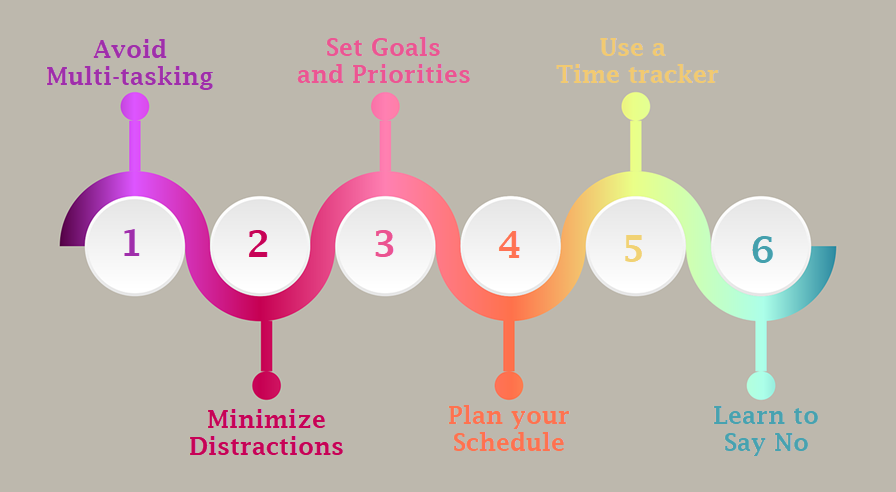What is Time Management?
In the fast-paced world we live in, time management has become an essential skill for success. It’s not about working longer hours but working smarter to achieve your goals.

Effective time management allows you to make the most of your time, reducing stress, improving productivity, and fostering a healthy work-life balance.
The Significance of Time Management:
Effective time management offers many benefits that contribute to well-being and professional growth. Here are some key advantages:
- Reduced Stress Levels: By organizing your tasks and managing your time efficiently, you can alleviate the pressure of looming deadlines and the workload burden. This, in turn, leads to reduced stress levels and a calmer, more focused mindset.
- Achieving Work-Life Balance: Striking a balance between work and personal life is crucial for maintaining overall well-being. Good time management helps you balance your work and personal life, making your life happier and more fulfilling.
- Enhanced Productivity: Effective time management techniques, such as prioritization, scheduling, and eliminating distractions, boost productivity levels. This allows you to accomplish more in less time, maximizing your output and achieving your goals more efficiently.
- Improved Focus: When time is managed effectively, you can dedicate your full attention to the task, minimizing distractions and enhancing focus. This deep concentration leads to better quality work and a sense of accomplishment.
Common Challenges to Time Management:
Several common challenges can hinder effective time management:
- Procrastination: The tendency to delay or postpone tasks can lead to a buildup of work, creating stress and hindering progress.
- Distractions: Constant interruptions, such as emails, social media notifications, or phone calls, can disrupt focus and derail productivity.
- Lack of Planning: Without a clear plan and schedule, it’s easy to lose track of tasks and priorities, leading to inefficiency and missed deadlines.
Strategies for Effective Time Management:
To overcome these challenges and master the art of time management, consider implementing the following strategies:

Avoid Multitasking:
Multitasking may seem efficient, but it often leads to decreased productivity and increased errors. Focus on one task at a time to ensure quality and efficiency.
Minimize Distractions:
Identify and eliminate distractions that disrupt your focus. Set aside dedicated work time, silence notifications, or usage of productivity apps.
Set Goals and Priorities:
Clearly define your goals and prioritize tasks based on their importance and urgency. These goals will help you focus on the most critical tasks, ensuring progress towards your objectives.
Plan Your Schedule:
Create a daily or weekly schedule that outlines your tasks and allocates specific time slots for each. A proper schedule provides a roadmap for your day and helps you stay on track.
Utilize Time Tracking Applications:
Employ time-tracking tools to monitor how you spend your time. This data can reveal areas for improvement and help you optimize your time management strategies.
Learn to Say No:
Don’t overload yourself with too many commitments. Be assertive in declining additional tasks or responsibilities if your schedule is packed.
By implementing these strategies and cultivating effective time management habits, you can enhance your productivity, reduce stress, and achieve greater balance and fulfillment in your personal and professional life.

